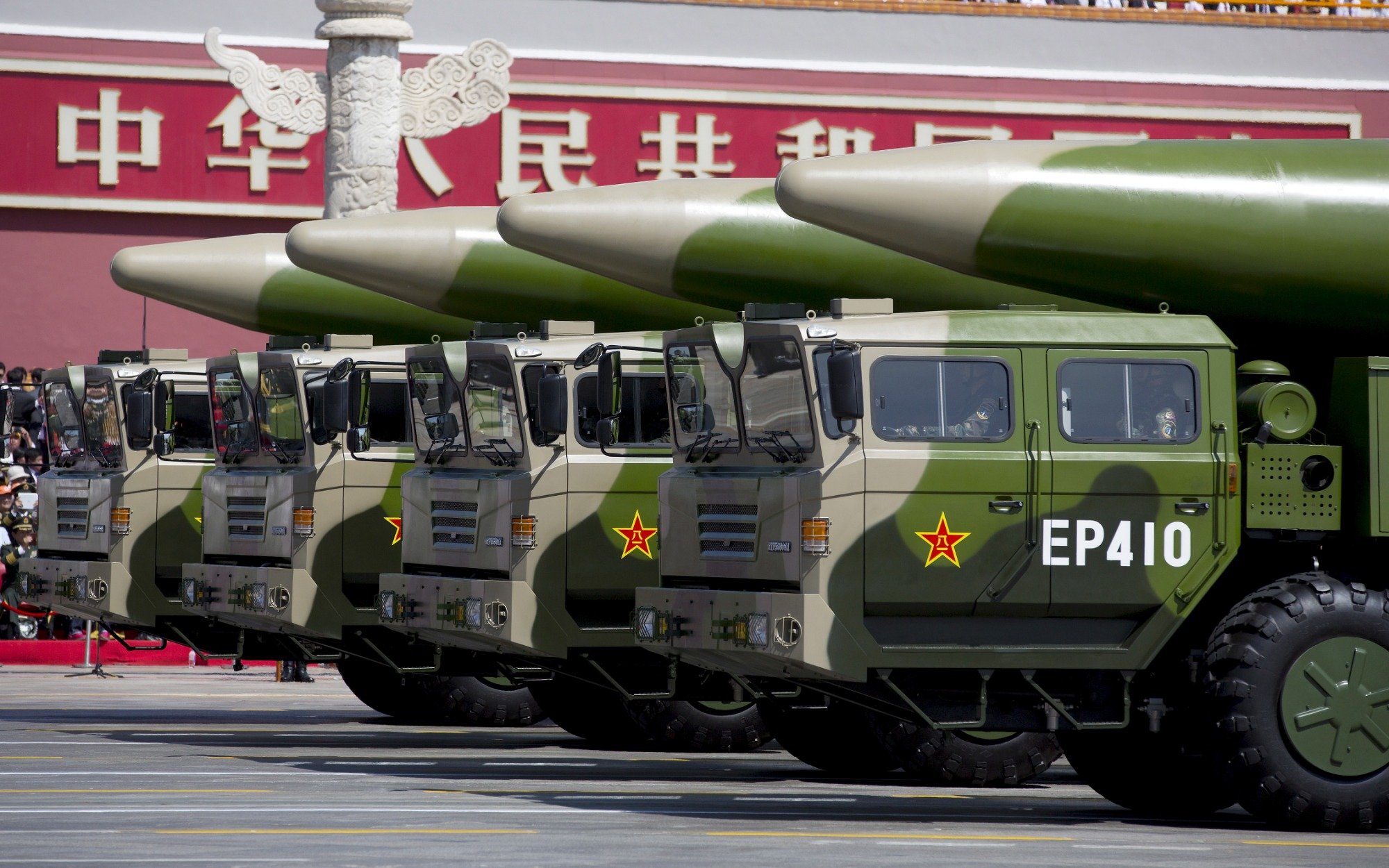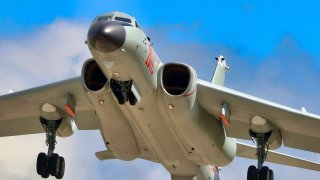Experts Say China is Poised to Enact Their “Anaconda Strategy” Against Taiwan
Ukraine and Taiwan are often compared in geopolitical discussions, but their situations differ significantly. Ukraine faces a ground war of attrition with Russia, while Taiwan is threatened by China's naval and cyber capabilities.
Summary and Key Points: Ukraine and Taiwan are often compared in geopolitical discussions, but their situations differ significantly. Ukraine faces a ground war of attrition with Russia, while Taiwan is threatened by China's naval and cyber capabilities.
-According to an analysis by the Foundation for the Defense of Democracies (FDD), China may use an "Anaconda strategy" against Taiwan, employing cyberattacks, disinformation, and blockades to force Taiwan into submission without a direct invasion.
-While Ukraine is a landlocked conflict, Taiwan's island geography makes it more vulnerable to such asymmetric tactics.
China’s Anaconda Strategy: A New Approach to Taiwan
As the West focuses on Ukraine, China's strategic positioning and growing dominance in the South China Sea could make Taiwan increasingly vulnerable to Chinese aggression.
Ukraine and Taiwan are linked. Perhaps you’ve heard that phrase from armchair generals.
Never mind that they are separated by a continent and rivers and mountains. Or that the Ukrainians are threatened by the Russian Federation whereas Taiwan is threatened by China.
Forget the fact that Ukraine is a mostly ground war of attrition whereas any conflict between China and Taiwan would be a predominantly naval one that might involve massive amphibious landings.
They’re linked. At least they are in the minds of the people who purport to run our country. It’s not really clear how they are linked beyond the reductionist view that we are living in World War II all over again.
That’s why a recent assessment done by the Foundation for the Defense of Democracies (FDD) on what a Sino-Taiwan War would look like is so interesting.
On its very face, the FDD analysis, whether it meant to or not, throws a red flag down on such malarkey talking points. According to FDD, any “potential conflict with Beijing would not be similar to Russia’s invasion of Ukraine, and China would target energy and food supplies.”
China’s military is likely to use economic and cyberwarfare tactics with wanton abandon against Taiwan to force it to surrender before a direct military intervention was undertaken by China’s numerous, technologically advanced, but unproven forces.
The Anaconda Strategy
In the view of FDD’s analysts, Beijing is likely to employ what they call the Anaconda strategy, “in which Beijing would likely use cyberwarfare and disinformation campaigns followed by a blockade or other measures to strangulate Taiwan, rather than attempting an invasion.”
China was humiliated by the Americans during the 1996 Taiwan Strait Crisis. Beijing’s carefully laid plans against their democratic neighbors in Taiwan were publicly upended by the arrival of two U.S. aircraft carriers into the Taiwan Strait. China’s military has been on a modernization spree ever since. That modernization push is paired with a desire to wage asymmetrical warfare on China’s perceived enemies.
A large-scale cyberattack on Taiwan would be a costly affair for China, as the FDD analysts properly assess. It would also be a costly affair for the defender. As Taiwan’s infrastructure falls under a sustained cyberattack, creating chaos throughout the island, Taiwan would be distracted and weakened. It would be digitally isolated from the wider world, as Chinese cyberattacks would likely hit critical telecommunications nodes.
This Chinese cyberattack would strike at Taiwan’s economy. Evoking FDD’s senior director for Cyber and Technology Innovation, retired US Navy Rear Adm. Mark Montgomery, Taiwan will struggle under the pressure to “keep things going during a series of interlaced critical infrastructure failures, where electrical power drives a problem with financial services,” for example.
Geography Counts
The geography of Taiwan and Ukraine could not be more different. Ukraine shares a massive land border with Russia and the Russians have long held onto key regions of Ukraine, in the east and on the Crimean Peninsula to the south. Further, Ukraine is a mud-soaked flatland.
Taiwan is an island.

China would seek to achieve victory over the Taiwanese, but they just might decide to accomplish this herculean task without risking their valuable sons in what could amount to a bloody amphibious landing. (Any Chinese invasion of Taiwan would rival the Allied landings on Normandy Beach during D-Day in WWII).
Would it not be easier to simply surround the island, terrorize it, and choke it off until it capitulates, just as an Anaconda snake does to its helpless prey?
The Ukraine and Taiwanese situations are lightyears apart. In fact, the longer that the West is bogged down in the killing fields of Ukraine, the greater the likelihood that China assumes that now is the greatest moment for them to strike hard at Taiwan.
China is not playing by Western rules or modalities. Yes, they seek to dominate their near-abroad, as every great power does. They just might not do it the way the Anglo-Americans would.
Indeed, China’s Anaconda Strategy might end up being far more effective than anything the West could concoct. With China’s quasi-conquest of the South China Sea and their expansion into the East China Sea, it is obvious that Beijing’s strategists are taking the maritime passes into Taiwan for themselves. While there are economic reasons to seek dominance in those waterways.
There are also real strategic reasons for doing so, and they all redound to choking Taiwan off. The moment of absolute crisis is now. Taiwan is not ready. The West is distracted. China, on the other hand, is poised.
Author Experience and Expertise: Brandon J. Weichert
Brandon J. Weichert, a National Interest national security analyst, is a former Congressional staffer and geopolitical analyst who is a contributor at The Washington Times, the Asia Times, and The-Pipeline. He is the author of Winning Space: How America Remains a Superpower, Biohacked: China’s Race to Control Life, and The Shadow War: Iran’s Quest for Supremacy. His next book, A Disaster of Our Own Making: How the West Lost Ukraine, is due October 22 from Encounter Books. Weichert can be followed via Twitter @WeTheBrandon.
All images on page Shutterstock. Main image is a generic cruise missile image.
From the Vault
Russia Freaked Out: Why the U.S. Navy 'Unretired' the Iowa-Class Battleships
Battleship vs. Battlecruiser: Iowa-Class vs. Russia's Kirov-Class (Who Wins?)


